“Charot” is a colloquial Filipino term that means “just kidding,” and is often added to the end of a sentence as a way to downplay a statement. It also happens to be the title of a new musical by the Philippine Educational Theater Association (PETA).
Adding another layer of meaning, the title is also a play on the word charot and “charter change,” which in this case, refers to the Duterte administration’s plan to shift to a federal form of government. It’s a complicated topic full of jargon and nuance that is effectively — and entertainingly — explained in the musical comedy.
Coconuts Manila attended the show’s first night on Friday and found it to be amusing, laugh-out-loud funny, and educational — if a little bit too on the nose.
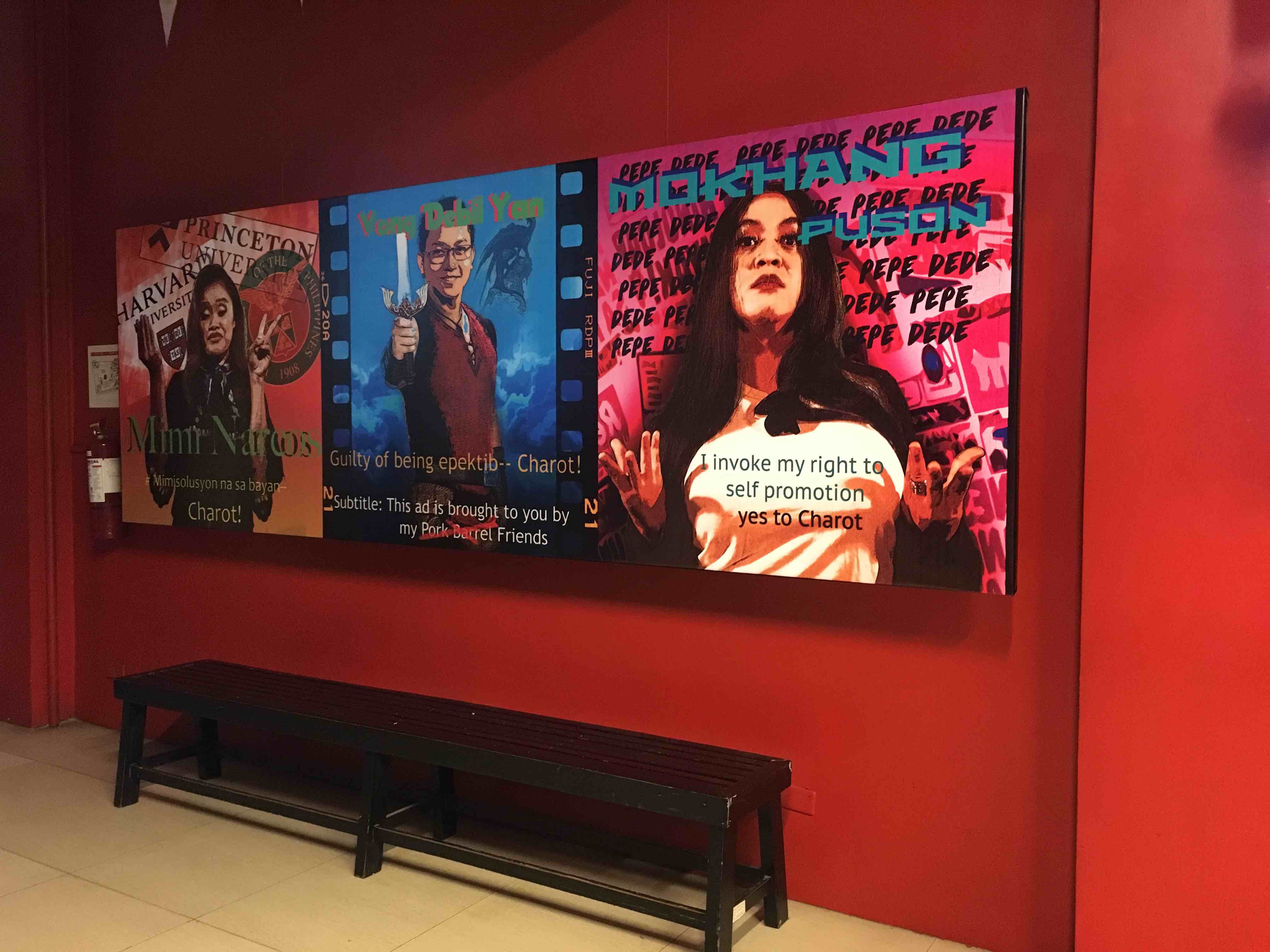
The story is set in the fictional country P.I., which is based on (what else) — modern-day Philippines. P.I. refers to the “Philippine Islands” but is also another way to say putang ina, President Rodrigo Duterte’s favorite curse word that means “mother f*cker” or “son of a b*tch.”
The musical is filled with a lot of these double entendres as it lampoons the Philippine’s current political state. This is most evident in the main characters who find themselves stuck in traffic on the way to a plebiscite for the ratification of the proposed charter change.
It’s a simple and straightforward comedy of errors, not by any of the characters, but by the city that they live in. An ensemble of 11 are on their way to a voting precinct but encounter obstacles like flooding and terrible traffic.
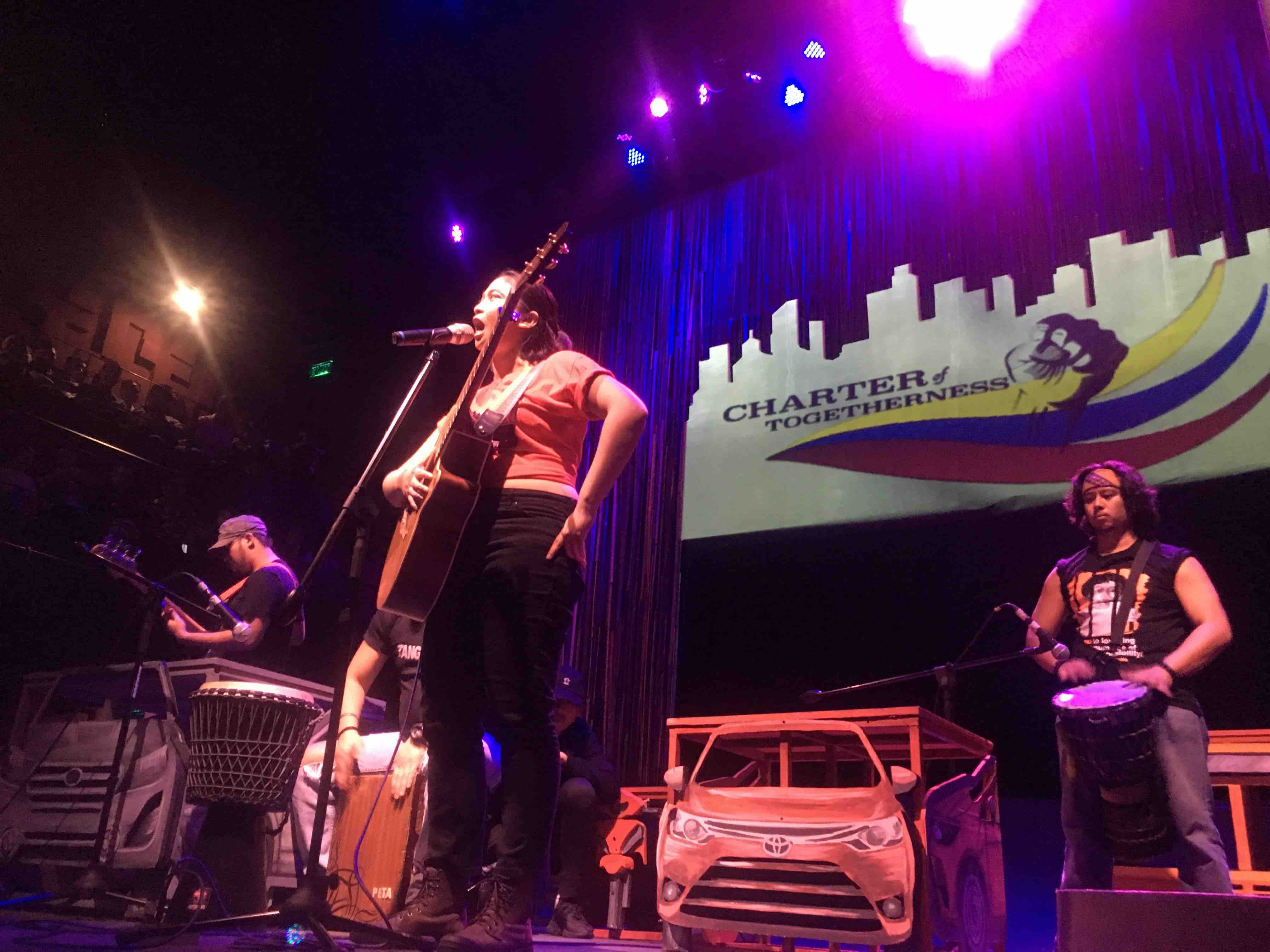
“Will they arrive in the precinct before polls close?” That’s the question that drives the plot.
The production is simple and has a community theater vibe, so the musical relies heavily on the performances delivered by the cast.
Each character represents a different sector of society. There’s a millennial online “influencer” and her boyfriend who has differing political views. There’s also a gay ride-sharing app driver, a department store saleslady, a pregnant mother, and traffic enforcer, among others.
While some of the characters are on the brink of becoming caricatures, many effectively display, comment on, and satirize people’s behaviors and concerns.
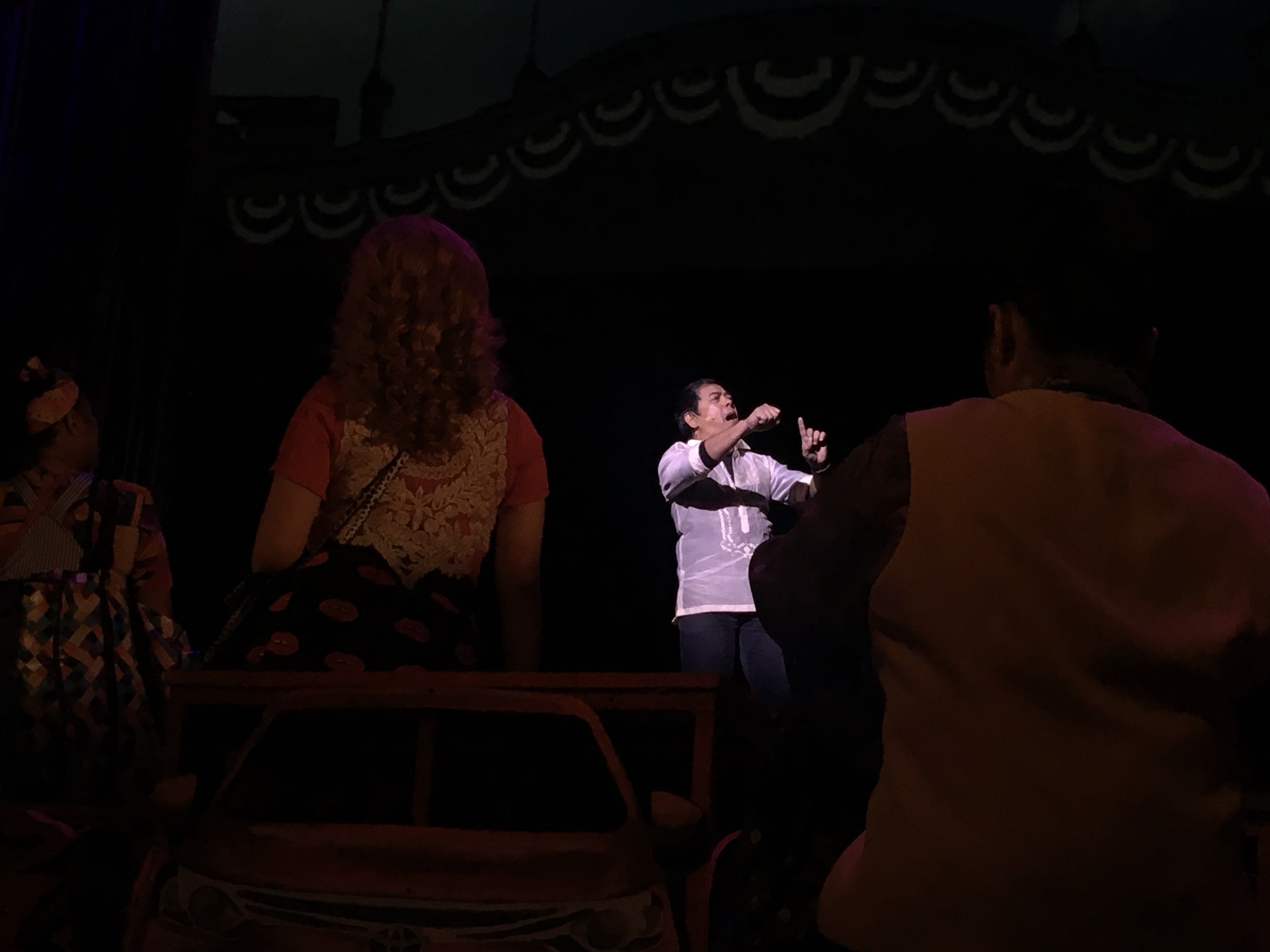
The best example is Tita (Auntie) Mary Grace, an affluent middle-aged woman who is stuck in traffic with the rest of the characters. She comes from higher up in the flyover (another metaphor) and goes down to meet with the others.
She’s first portrayed as pleasant, even philanthropic, but with patronizing undertones that highlight her privilege. Her worst traits, like being out of touch with reality, become more obvious as the story progresses.
Tita Mary Grace is played by actress Meann Espinosa, who delivers some of the best acting chops in the show. She plays two other minor characters with the same mix of good comedic timing and physical comedy that makes her character so engaging and real.
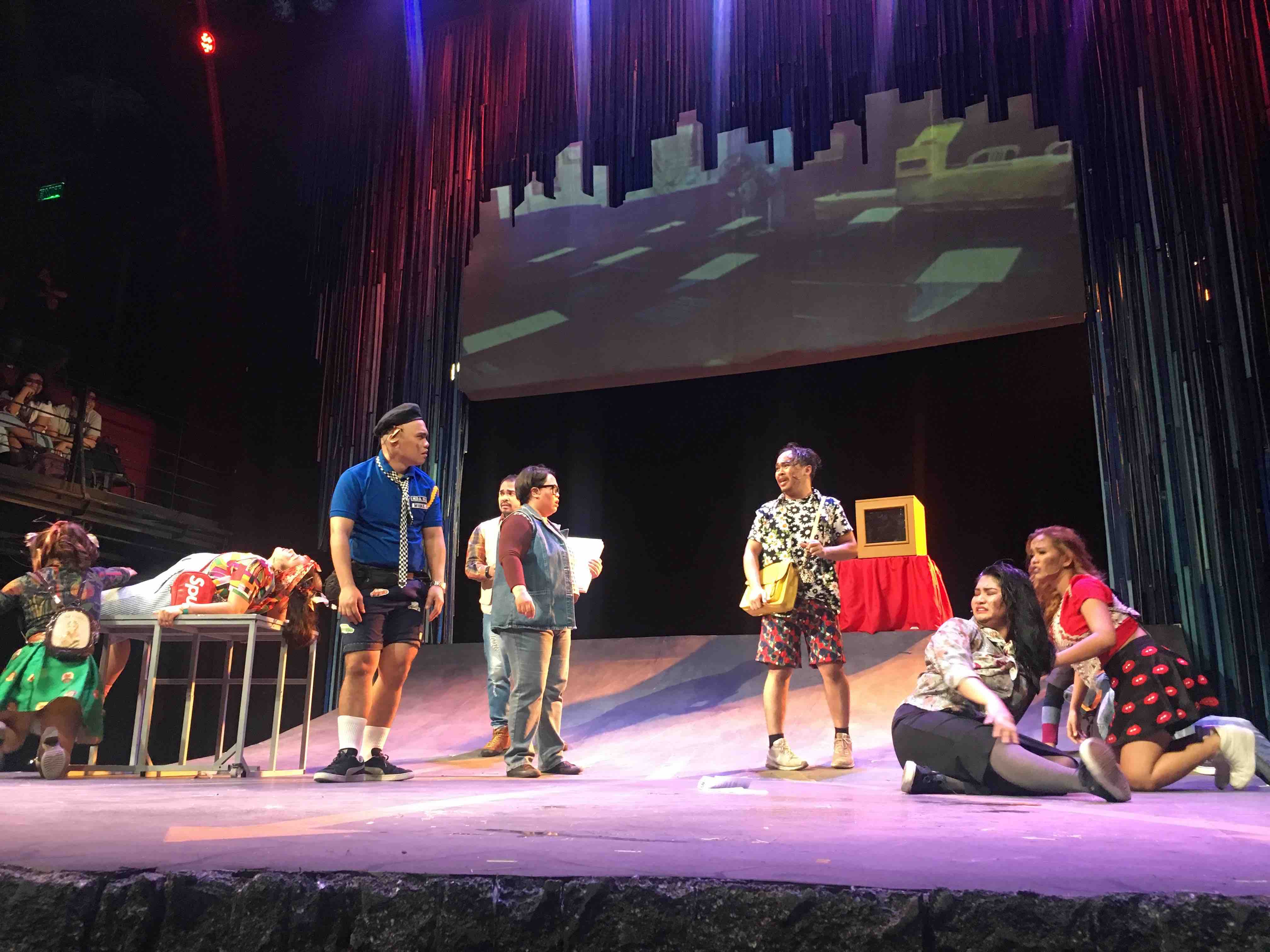
The first half of the play runs, perhaps, a little too long, and takes its time setting up the premise and conflict. The show eventually gets to the meat of the story after the intermission.
**Small spoiler alert** — just a small plot progression — nothing too revealing.
At this point, the main characters have decided to escape the intense traffic by riding a chopper provided for by a corrupt politician on a lifeboat. The main characters are divided between the two modes of transportation, which are presented side by side on the stage.
In the scene, the characters take turns reading a pamphlet that explains the details of the proposed charter change. “What is Federalism?” “What are its advantages and disadvantages?” are just some questions they answer.
It’s a competent scene that dramatizes the goal of the production to educate its audience — but it could also divide viewers who have different values.
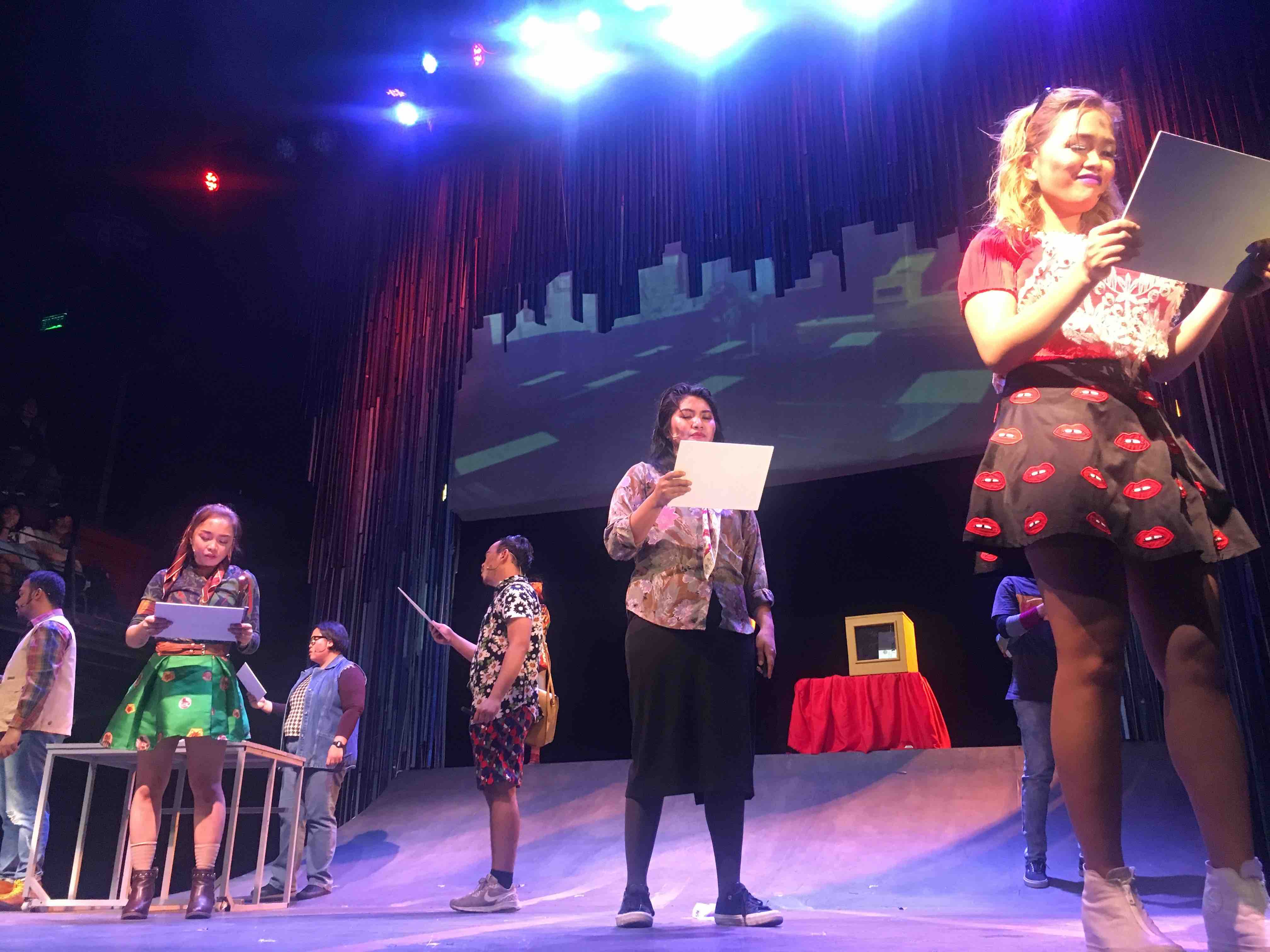
On one hand, it’s a good summary of an important issue, on the other, it’s a long expository scene that leaves little to the imagination. It hits the audience on the head with the information and feels more like a creative class presentation than a stage musical.
The scene ends with the cast breaking the fourth wall, going down to the audience, and giving away the very pamphlets they were “reading” on stage.
It’s a little clunky but, again, highlights the central theme about making an informed decision.
The importance of choice is also incorporated in the show’s structure, which has bits of audience participation.
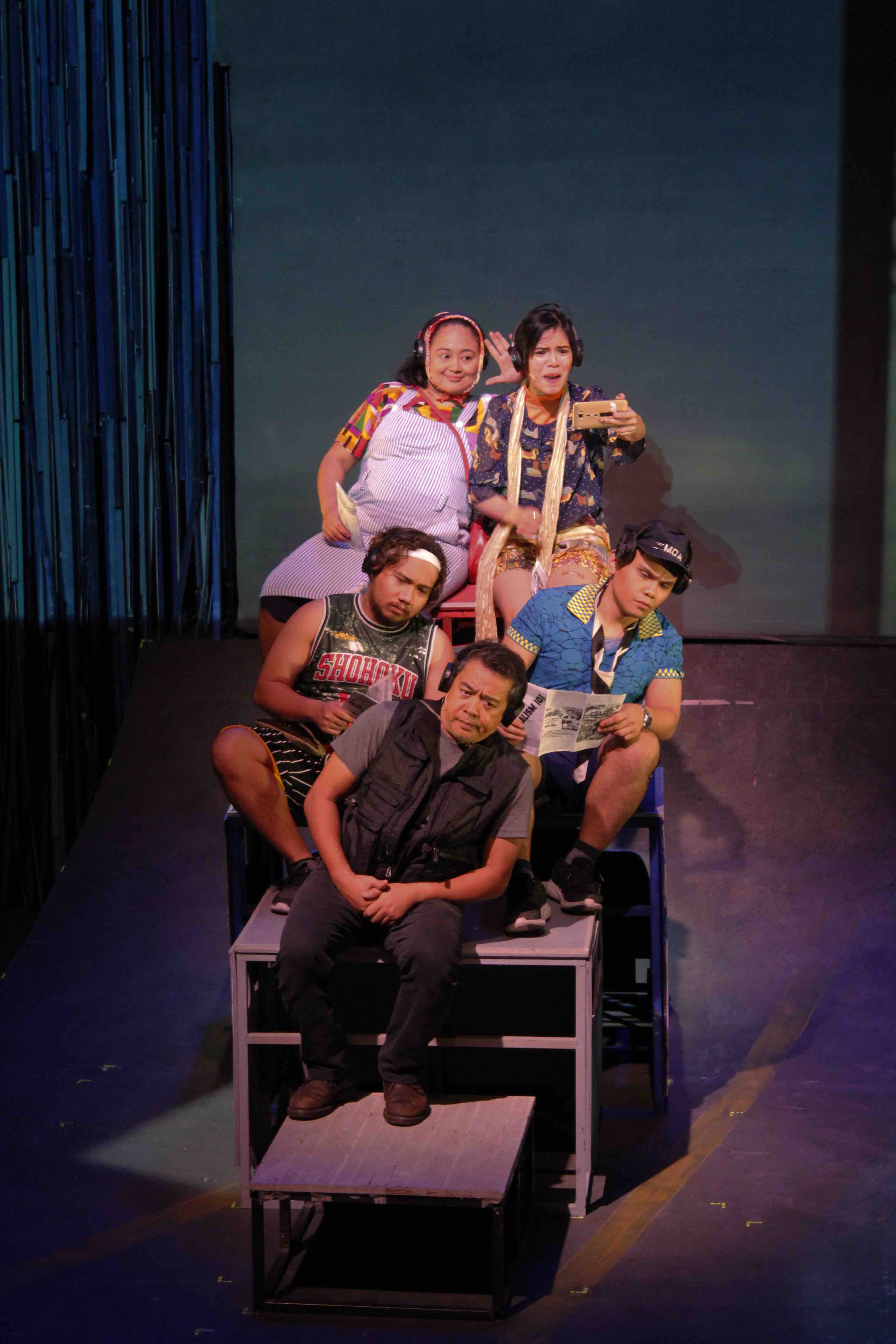
At one of its pivotal points, the audience is asked to make a decision for one of the characters by voting via a website flashed on a screen.
It calls to mind the Black Mirror episode “Bandersnatch,” the first choose-your-own-adventure film on Netflix. Charot‘s execution, while innovative, feels unnecessary because the audience would have ended up drawing the same lesson regardless of their collective decision.
The audience participation aspect is much more effective when it’s applied towards the end of the show, when viewers are asked to join the fictional plebiscite and vote whether or not they want to ratify the charter change.
The show does not say what the “right” or “wrong” answer is, leaving the audience to judge for themselves.
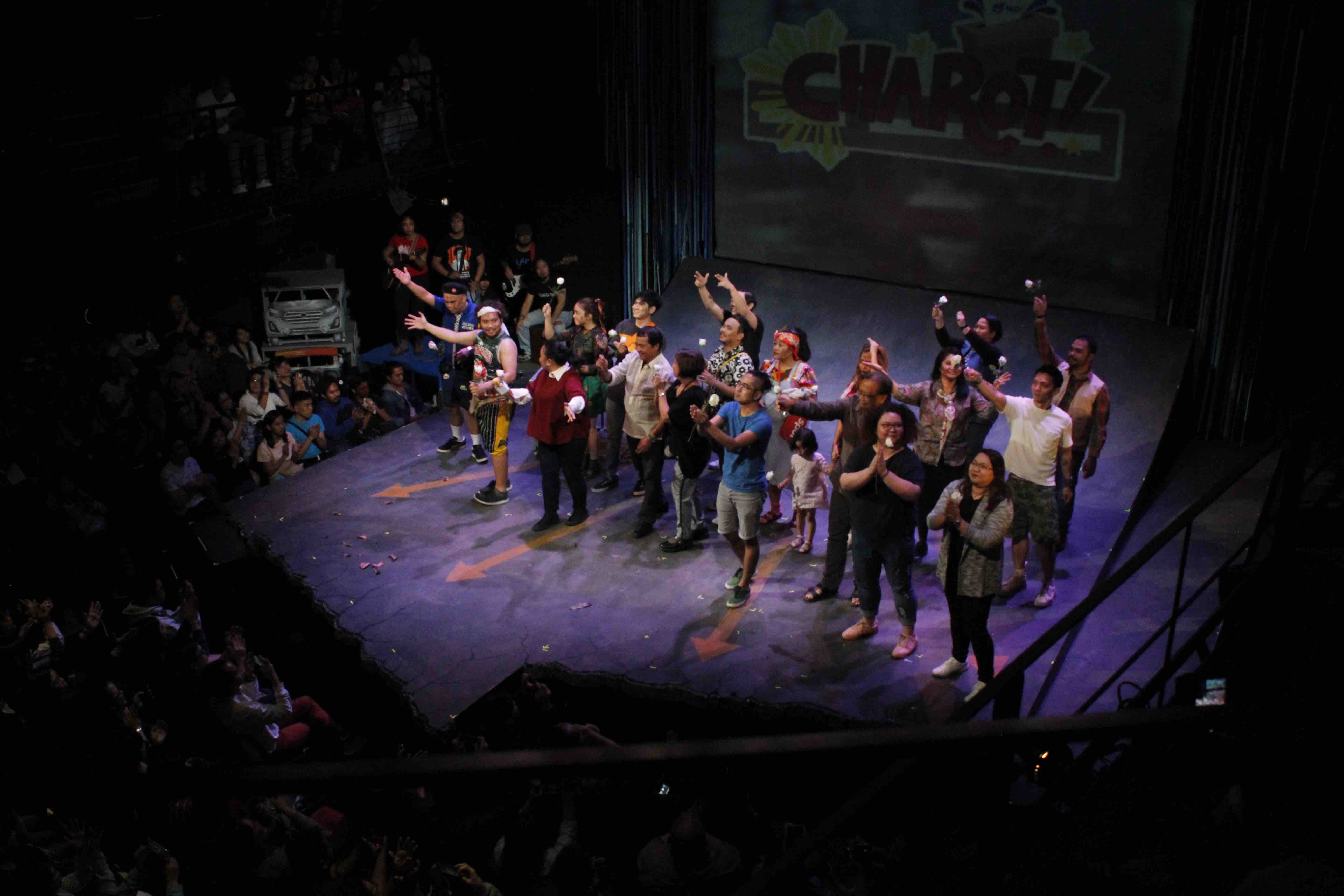
It is in this vagueness that Charot triumphs. Comedic elements throughout the show are incredibly specific, even referencing current pop culture trends, but it remains nonjudgemental about people’s political leanings. It’s not about what people choose — but that they make their own decision at all.
For a show that satirizes politics, Charot comes off as balanced, providing a framework of understanding that places more importance on the individual rather than their political leanings — a breath of fresh air in these polarizing times.
Charot was written by J-mee Katanyag and Michelle Ngu, and directed by Maribel Legarda. It runs from Feb. 8 — March 17 at The PETA Theater Center, with shows on Fridays at 3pm and Saturdays and Sundays at 3pm and 8pm.
Tickets are priced at PHP600 (US$11.49) to PHP1,500 (US$28.74) and are available at the PETA Marketing and Public Relations Office (Phone: 632 725 6244), Ticket World, and Ticket2Me.
FIND IT:
PETA Theater Center is at #5 Eymard Dr., Brgy. Kristong Hari, New Manila, Quezon City
Phone: 632 725 6244
Email: petatheater@gmail.com





Reader Interactions